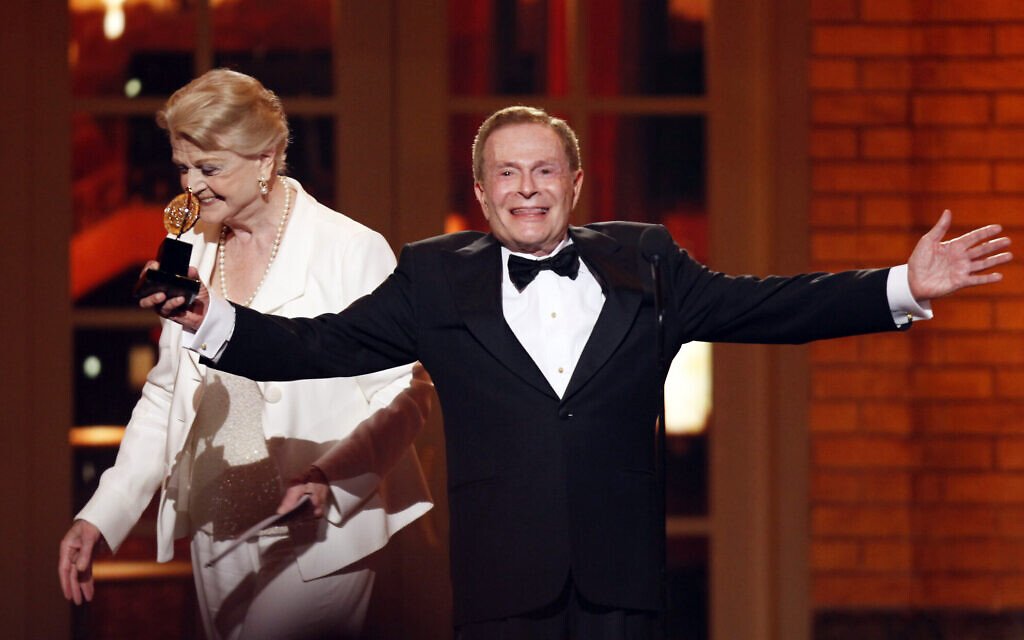
Timeless Magic of Broadway's Legendary Composer, Jerry Herman
Early life & education
Jerry Herman was born on July 10, 1931, in New York City. His parents, Harry and Ruth Herman, instilled in him a love for music from a young age. Harry, a gym teacher, and Ruth, a former singer and piano teacher who had performed in vaudeville, created a home filled with music. Growing up in Jersey City, New Jersey, Jerry began playing the piano under his mother’s guidance and soon showed a remarkable talent for composition.
Jerry attended the New York High School of Music & Art, where his passion for music continued to flourish. He then went on to Parsons School of Design before transferring to the University of Miami, where he immersed himself in drama and musical composition. It was at the University of Miami that Jerry wrote his first musical, Sketchbook, marking the beginning of an extraordinary career.
Early Career and Breakthrough
Returning to New York City after college, Jerry Herman became an active part of the off-Broadway scene. His early works, such as the revues I Feel Wonderful (1954) and Parade (1960), demonstrated his gift for creating engaging and heartfelt songs. His off-Broadway revue Nightcap (1958) garnered attention and paved the way for his Broadway debut with Milk and Honey (1961), a musical set in Israel. The show was a success, earning him his first Tony Award nomination and establishing him as a promising new talent.

Career
Hello, Dolly!
Jerry Herman's career reached new heights with the 1964 debut of Hello, Dolly!, based on Thornton Wilder’s play The Matchmaker. Starring Carol Channing, the musical became an instant hit, running for 2,844 performances and winning 10 Tony Awards, including Best Musical and Best Score for Herman. The show’s title song, famously recorded by Louis Armstrong, became a cultural phenomenon. Hits like "Before the Parade Passes By" and "It Only Takes a Moment" further solidified Herman's status as a Broadway legend.
Mame
In 1966, Herman followed up with Mame, starring Angela Lansbury. Based on Patrick Dennis’s novel Auntie Mame and its subsequent play adaptation, the musical was another triumph. Songs like "We Need a Little Christmas," "Bosom Buddies," and the title number "Mame" captured audiences' hearts and showcased Herman’s ability to create timeless, joyous music.
La Cage aux Folles
Jerry Herman made a triumphant return to Broadway in 1983 with La Cage aux Folles. The musical, which focused on the lives of a gay couple who run a drag nightclub, was both a critical and commercial success. It won six Tony Awards, including Best Musical and Best Score for Herman. The song "I Am What I Am" became an anthem of pride and self-acceptance, illustrating Herman’s talent for combining humor, heart, and social commentary.
Dear World and Mack & Mabel
Despite the success of Mame, Jerry Herman faced challenges with his next two musicals. Dear World (1969), an adaptation of Jean Giraudoux’s play The Madwoman of Chaillot, received mixed reviews despite Angela Lansbury’s strong performance. The musical had a relatively short run but included memorable songs like "I Don’t Want to Know" and "Kiss Her Now."
Mack & Mabel (1974) told the story of silent film director Mack Sennett and his star Mabel Normand. Although it struggled at the box office and closed after 66 performances, the show developed a cult following. Songs like "Time Heals Everything" and "I Won’t Send Roses" are still beloved by musical theater enthusiasts.

Legacy
Jerry Herman passed away on December 26, 2019, but his music lives on. His musicals, known for their wit, warmth, and unforgettable melodies, continue to delight audiences. Herman’s optimistic spirit and dedication to his craft have left an enduring mark on the world of musical theater.
A musical innovator
Jerry Herman's ability to create songs that resonate with joy and humanity has made him one of Broadway’s most cherished composers. His work continues to inspire and entertain, ensuring that his contributions to the arts will be celebrated for generations to come.

